How Much Protein Should You Take to Gain Muscle
7 Ways Eating Too Much Protein Can Harm Your Health
Too much of the muscle-building macro can wreak havoc on your health goals.

September 17, 2020
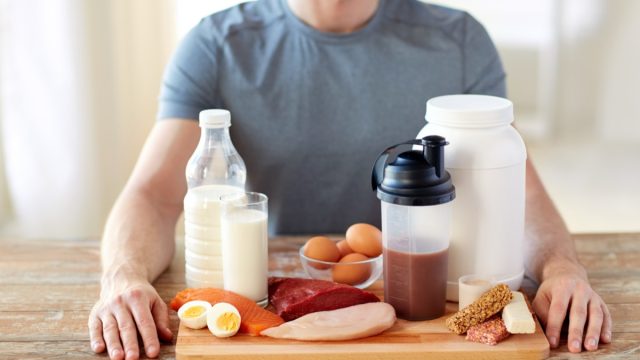
One scan of the grocery store and it's clear: our culture is obsessed with protein. From pudding and pancake mix to milk and yogurt, nearly everything has gotten pumped with an extra dose of the nutrient.
Protein aids muscle growth, wards off hunger, and aids weight loss, so this culinary revolution may seem like a good thing. But while we love the macronutrient, consuming too much protein can have some serious consequences for your waistline and health.
What's too much? Well, the rule of thumb is that you should consume about 0.45 grams of protein per pound for men and 0.35 grams of protein per pound for women—if you're sedentary (protein intake recommendations vary by activity level). So, if you're a 150-pound sedentary woman, you shouldn't be taking in more than 52.5 grams of protein in a day. Not sure what that looks like? Take a look at our list of foods with more protein than an egg to get a better idea. And now read on to discover the scary side effects that can happen to your body when you eat too much protein! While we're on the topic of protein, if your top source of the muscle-building macro is animal protein, you should really know What Happens to Your Body When You Eat Too Much Meat.
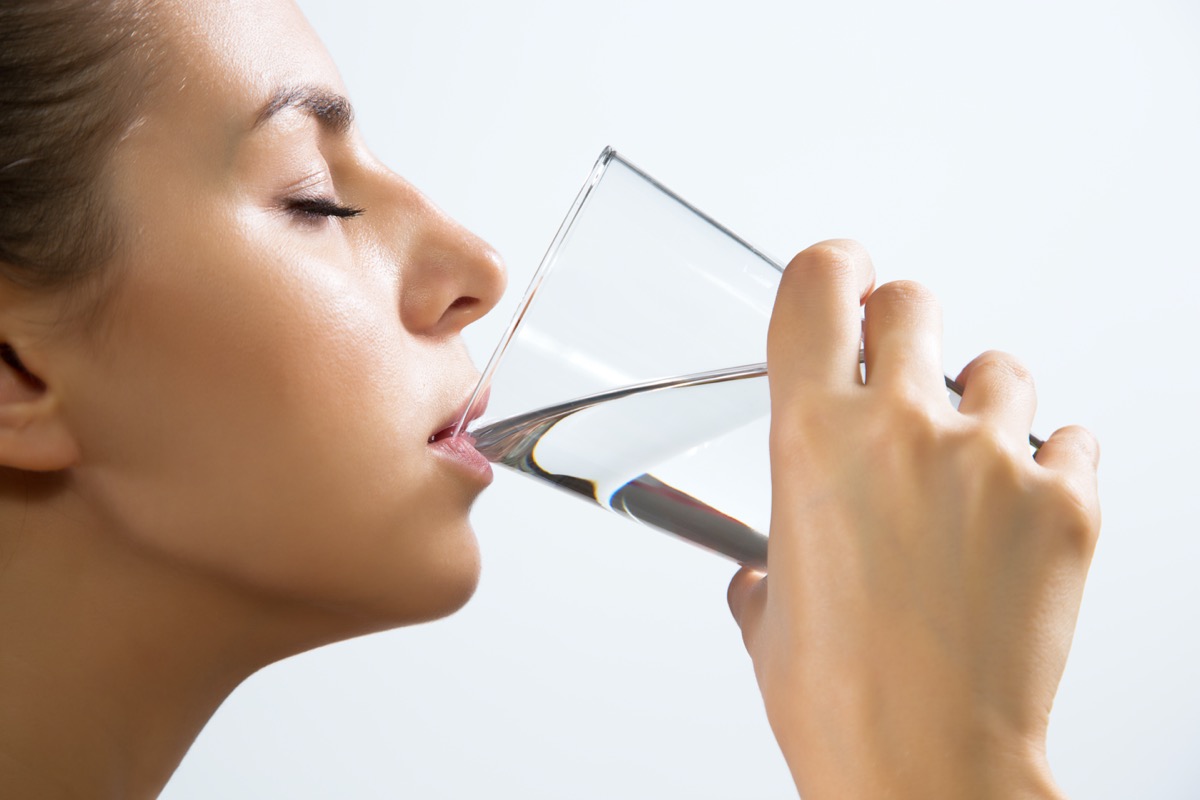
You know all of the extra nitrogen we just told you about? Not only can it wreak havoc on your kidneys, but it can leave you feeling parched, too. The reason: "High amounts of nitrogen are toxic. So, to stay safe, the body uses fluids and water to flush it out, which can leave you feeling thirsty," explains registered dietitian Cassie Bjork, RD, LD of Healthy Simple Life. Increasing your water intake can counteract the effects.
STAY INFORMED: Sign up for our newsletter to get the latest food news delivered straight to your inbox.

Many people who scarf a lot of protein do so because they're cutting back on carbs. And when you're on a low-carb diet, the body turns to stored fat for energy. Although this may be a good thing for your abs (at first, at least), it's not so great for your breath. "When you don't eat enough carbs, the body burns fat and protein for fuel. It does so by a process called ketosis. Unfortunately, ketones have an awful smell that cannot be masked by brushing or flossing," says registered dietitian Isabel Smith, MS, RD, CDN. Cutting back on your daily dose of protein and upping your carbs can remedy the issue, as can doubling your water intake.
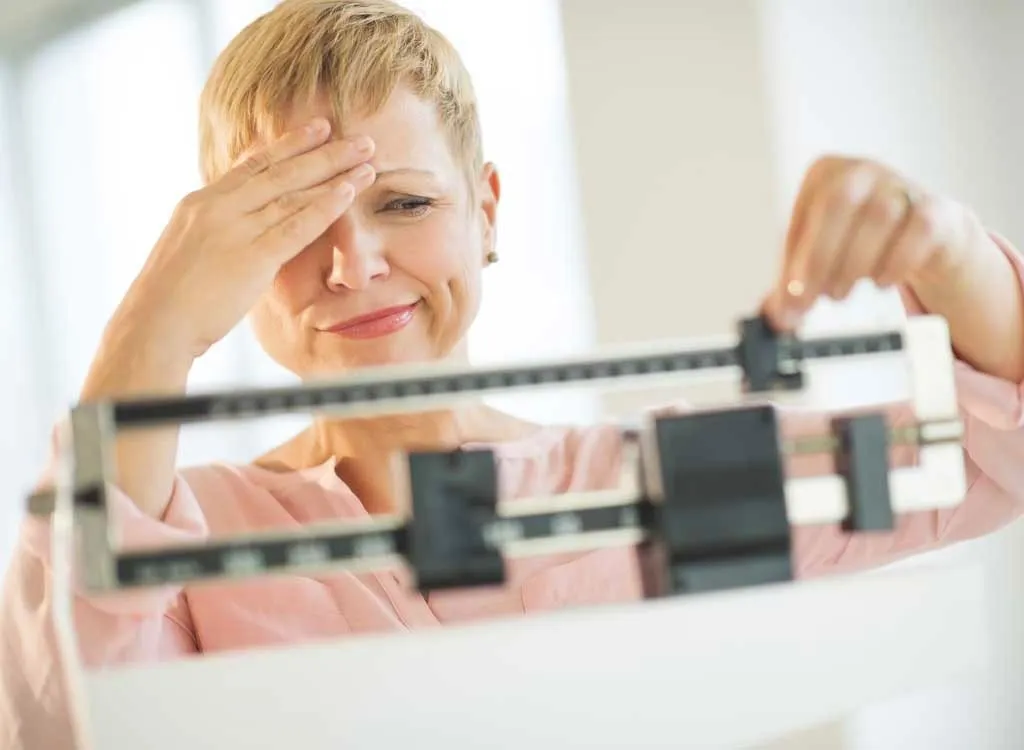
A high-protein, low-carb diet may help your extra pounds weight fly off initially, but it can actually cause weight gain in the long-term, according to a Spanish study. To come to this finding, researchers asked more than 7,000 study participants to fill out questionnaires about their eating habits over the course of six years. After analyzing the data for commonalities, they found that the those who ate high-protein diets had a 90 percent greater risk of gaining more weight than those who ate less of the stuff. How much more weight? Ten percent of their body weight, or about 15 pounds for a 150-pound woman. Whoa!
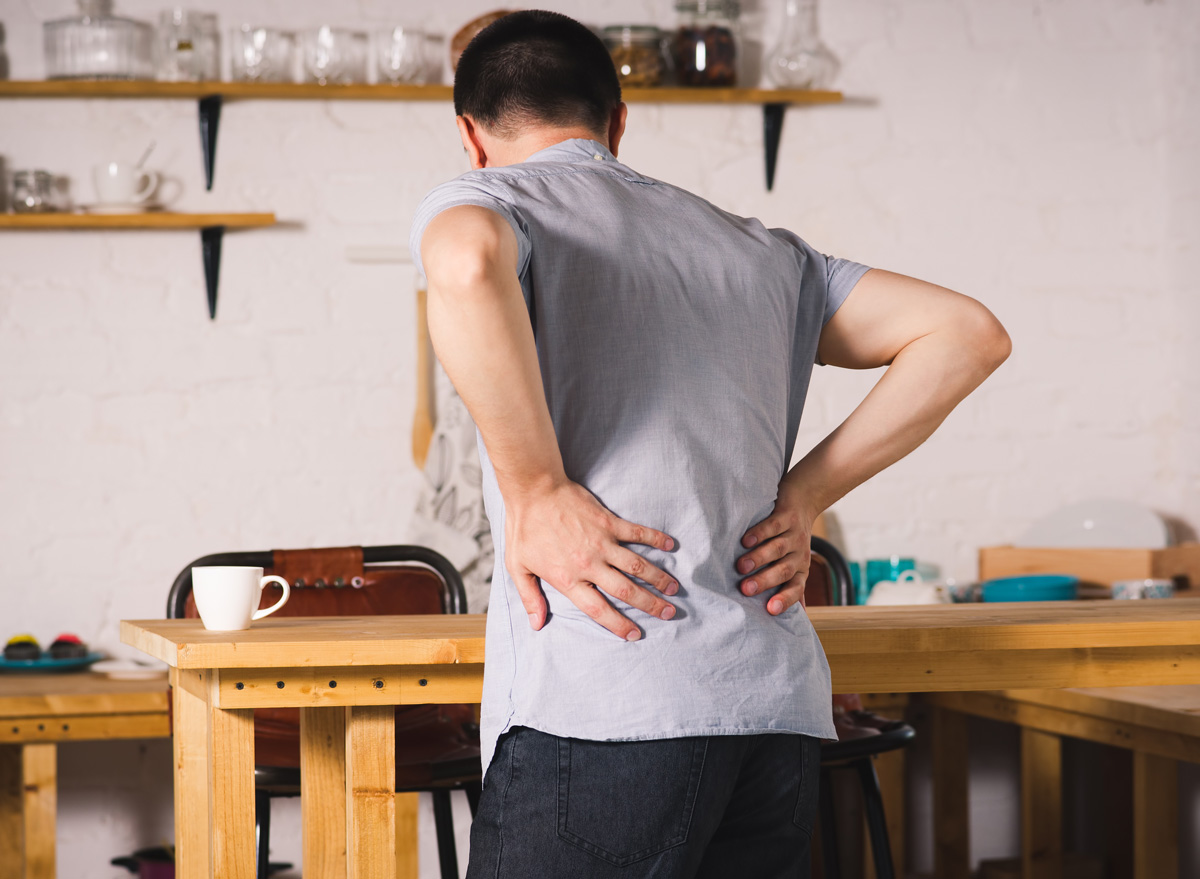
When you down a steak, chicken breast, or any other source of the muscle builder, you also take in nitrogen, which is naturally occurring in the amino acids that make up proteins. When you're consuming a normal amount of protein, you excrete the nitrogen—no harm, no foul. But when you eat a ton of the stuff, your kidneys have to go into overdrive to get rid of all the extra nitrogen, explains Bjork. "In the short run, this isn't harmful to most people. But if you're a long-time high-protein dieter, you could be increasing your risk for kidney damage," she warns.
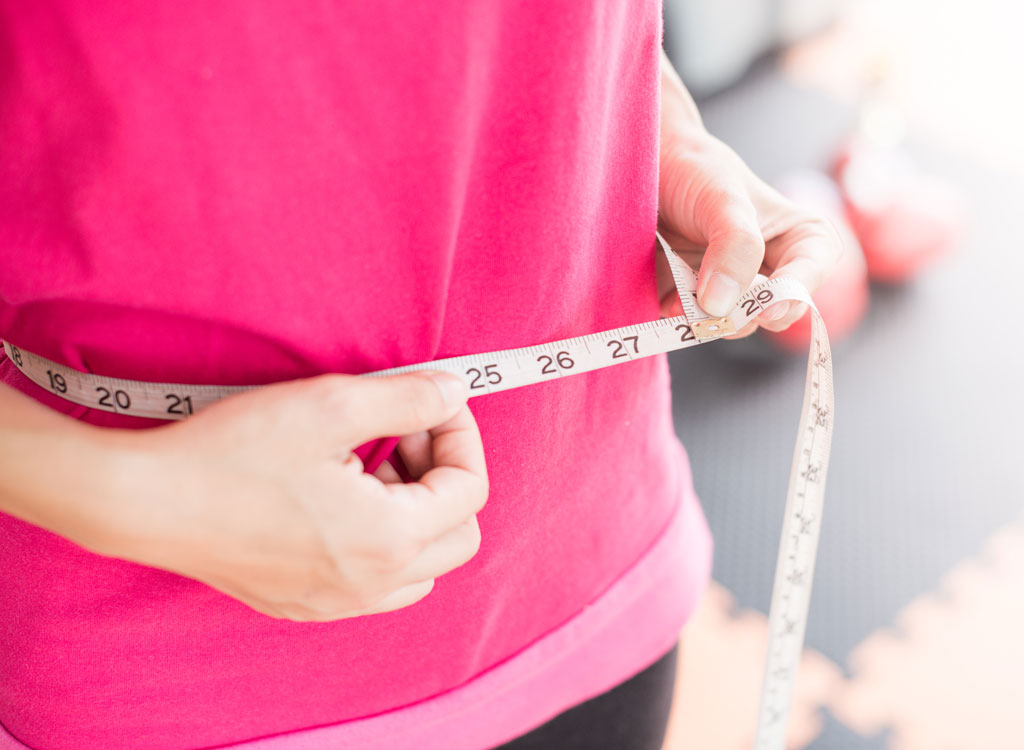
Not only will you gain weight—the majority of the weight will be in the form of flab. You know those abs you worked so hard to uncover? Kiss those goodbye. When you take in more protein than your body needs—many experts say that 30 grams is the max your body can handle per meal—the extra protein will likely be stored as fat, while the excess amino acids will simply be excreted.

According to a study in Cell Metabolism that followed thousands of adults for nearly 20 years, those who eat a diet rich in animal protein are four times as likely to die of cancer than those who follow a low-protein diet. And other findings back the finding: In another study cited by WebMD of thousands of people, researchers found that high-protein dieters had up a 66 percent greater risk of death during the study period than those who ate less protein. Eating more protein than you should is just one of the 20 Worst Eating Habits That Are Shaving Years Off Your Life.

When you down too many chicken breasts, protein shakes, and eggs, your digestive enzymes can't keep up with all the protein you are ingesting, says Bjork. "This can lead to indigestion and nausea. Easing up on your protein intake should easy your shaky stomach," she adds. Not sure what to replace your protein-rich eats with? These healthy complex carbs are all healthy picks.
Dana Leigh Smith
Dana has written for Women's Health, Prevention, Reader's Digest, and countless other publications. Read more
How Much Protein Should You Take to Gain Muscle
Source: https://www.eatthis.com/what-happens-when-you-eat-too-much-protein/